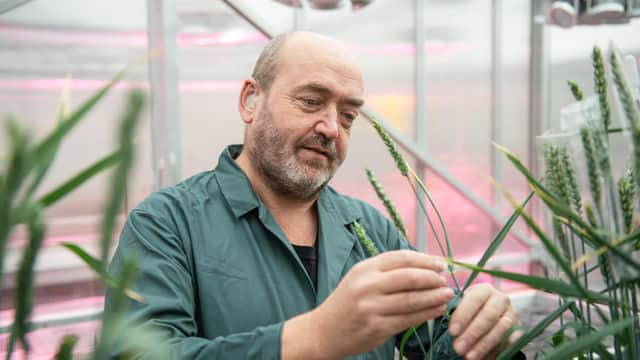UK trials to screen out cancer agents in wheat get the go ahead


The wheat, which will be grown by the UK’s Rothamsted Research institute, has been edited to reduce levels of the naturally occurring amino acid asparagine, which is converted to the carcinogenic processing contaminant, acrylamide when bread is baked or toasted.
The ultimate aim of the project is to produce ultra-low asparagine, non-GM wheat, said Professor Nigel Halford who is leading the project at the institute which has been to the forefront in pioneering the use of novel breeding techniques.
Advertisement
Hide AdAdvertisement
Hide Ad“Acrylamide has been a very serious problem for food manufacturers since being discovered in food in 2002,” said Halford, who added that it caused cancer in rodents and was considered ‘probably carcinogenic’ for humans.
“It occurs in bread and increases substantially when the bread is toasted, but is also present in other wheat products and many crop-derived foods that are fried, baked, roasted or toasted, including crisps and other snacks, chips, roast potatoes and coffee.”
But he said the research indicated that asparagine levels could be reduced substantially in wheat without compromising grain quality.
“This would benefit consumers by reducing their exposure to acrylamide from their diet, and food businesses by enabling them to comply with regulations on the presence of acrylamide in their products.”
It is anticipated that the project will run for up to five years, ending in 2026, with plants being sown in September/October each year and harvested the following September. Funding is in place for the first year and additional support is being sought for the subsequent years.
The edited plants will be grown alongside wheat in which asparagine synthesis has been affected using the ‘old-fashioned’ method of chemically-induced mutation.This technique has been widely used in plant breeding since the mid-20th century, but the researchers said it was not targetable in the way that CRISPR was and resulted in random mutations.
Halford said that in contrast, CRISPR made small changes to a target gene - in this case to knock a specific gene out so that a functional protein was no longer made from it.
And he said that while the process initially involved genetic modification to introduce genes required for the CRISPR process into the plant, once the edit had been made the GM part could be removed from the plants by conventional plant breeding methods over a few generations.
Advertisement
Hide AdAdvertisement
Hide AdThe go-ahead for the trials takes place at a time when the UK government is considering the responses to its consultation on the wider use of technologies such as gene editing which had been hampered by EU legislation.
Comments
Want to join the conversation? Please or to comment on this article.